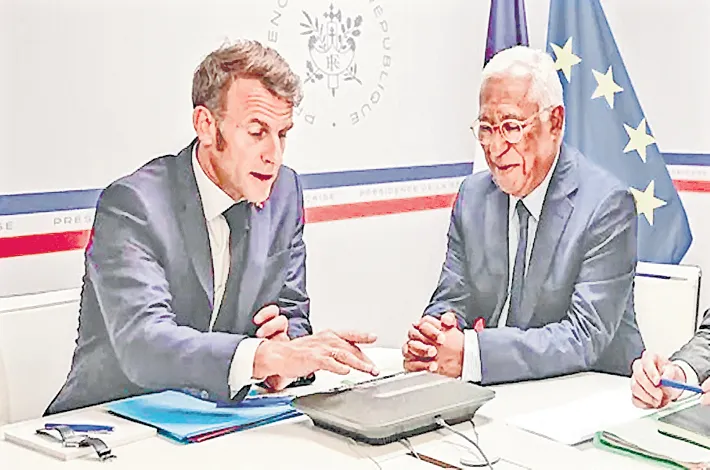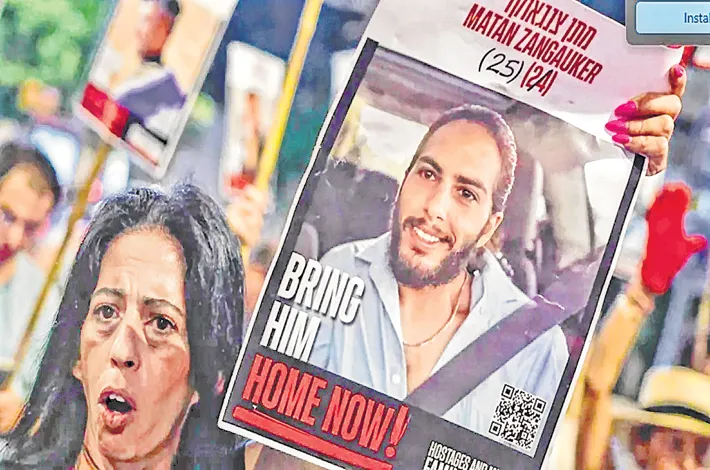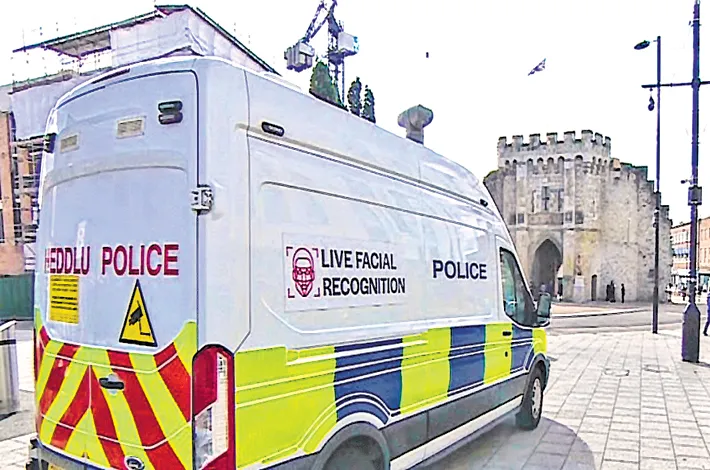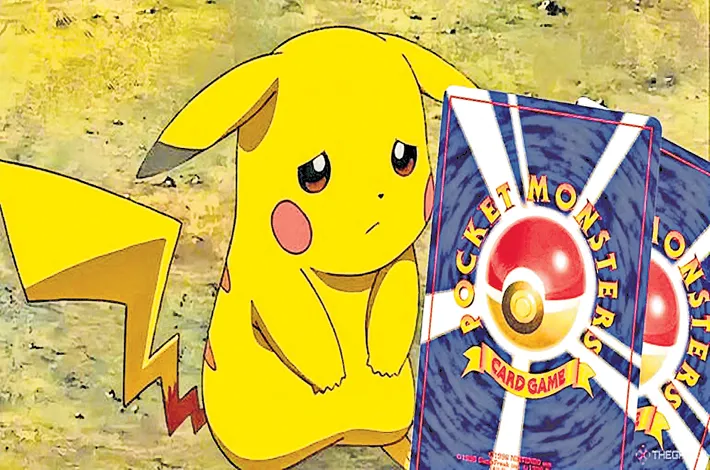The Midnight Hijack
14-06-2025 12:00:00 AM
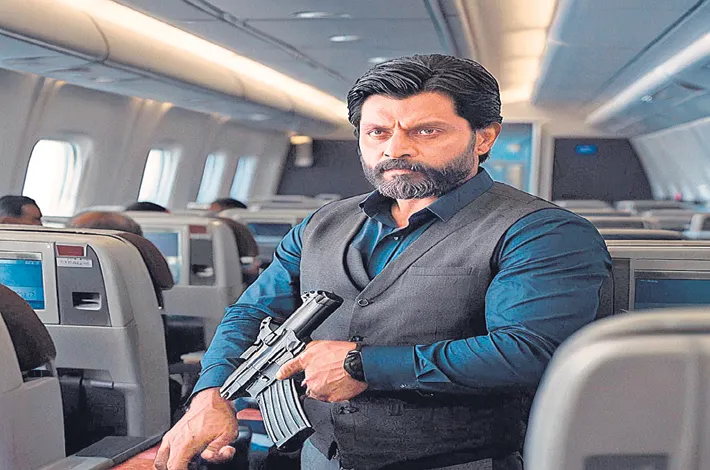
The Air India flight AI-472, bound for Delhi from Mumbai, sliced through the inky night sky at 35,000 feet. Inside the Boeing 787, 180 passengers dozed, read, or scrolled through their screens, oblivious to the storm brewing in the cockpit.
It was 1:17 a.m. on a humid June night in 2025, and Detective Inspector Vikram Rathore, seated in 23A, was trying to catch a few hours of sleep before landing. A 15-year veteran of the Delhi Police Crime Branch, Vikram was returning from a conference on counter-terrorism, his mind still buzzing with case studies and threat analyses.
A sudden jolt snapped him awake. The plane lurched, dipping sharply, and the cabin lights flickered. Murmurs rippled through the passengers as the seatbelt sign pinged on. Vikram’s instincts kicked in, his hand instinctively brushing the holster he wasn’t carrying—air travel meant no weapons. He glanced at the elderly woman beside him, clutching her armrest, and offered a reassuring nod. But something felt wrong.
The intercom crackled. “This is your captain,” a strained voice announced. “We’ve been ordered to divert to Kandahar. Please remain calm and follow instructions.” Gasps filled the cabin. Vikram’s jaw tightened. Kandahar? Taliban territory. This was no mechanical issue—this was a hijacking.
Moments later, four men stood up in unison, their movements precise. Two in the front, two in the rear. They wore black balaclavas, and each brandished a handgun. The leader, a wiry man with cold eyes visible through his mask, barked in Hindi, “No one moves! Phones on the floor, now!” A flight attendant near the galley froze, a tray of coffee cups trembling in her hands. The second hijacker, bulkier and wielding a knife, shoved her toward the passengers. “Sit down, or you’re first!”
Vikram’s mind raced, cataloging details: four men, armed, coordinated, likely trained. The leader’s accent hinted at Punjab, the knife-wielder’s stance suggested military experience. No visible explosives, but that didn’t rule out a bomb. He slid his phone under his seat, keeping his movements slow to avoid attention. His eyes darted to the emergency exit two rows ahead. A last resort.
The leader stormed toward the cockpit, barking orders into a radio in Pashto. Vikram caught fragments—something about demands, a prisoner exchange. The other three hijackers patrolled the aisles, their eyes scanning for defiance. A young man in a hoodie reached for his bag, and the knife-wielder slammed the butt of his gun into the man’s temple, sending him crumpling. “Next one dies!” he roared.
Vikram’s training urged action, but he knew rushing in unarmed was suicide. He needed intel. The elderly woman beside him whispered, “Are we going to die?” Her voice trembled, but her eyes were sharp. “Not if I can help it,” Vikram murmured. “What’s your name?”
“Sarita,” she said, clutching a small purse.
“Sarita, stay calm. I’m a police officer. I need you to watch the hijacker at the back—tell me if he moves.” She nodded, her fear giving way to focus.
Vikram leaned forward slightly, pretending to adjust his seatbelt, and caught a glimpse of the cockpit door. It was ajar, and he could see the leader arguing with the co-pilot. The captain was slumped, blood trickling from his temple. Vikram’s stomach churned. The situation was deteriorating fast.
A plan formed. The galley, ten feet away, might have knives or heavy objects. If he could neutralize one hijacker quietly, he could arm himself. But the rear hijacker was pacing too close. Vikram needed a distraction.
He turned to Sarita. “Can you fake a heart attack?” he whispered. Her eyes widened, but she nodded. “When I tap your hand, clutch your chest and scream.”
Vikram waited, watching the rear hijacker’s patrol pattern. The man turned, facing the tail of the plane. Vikram tapped Sarita’s hand. She gasped, clutching her chest, and let out a piercing wail. “My heart! Help me!” Passengers turned, and the rear hijacker hesitated, stepping toward her.
Vikram moved. He slipped into the aisle, staying low, and darted into the galley. Inside, he grabbed a metal coffee pot and a carving knife from a drawer. His pulse pounded, but years of training kept his hands steady. He pressed himself against the galley wall, listening. The rear hijacker was now shouting at Sarita to quiet down.
Vikram peeked out. The hijacker’s back was to him, three feet away. He lunged, slamming the coffee pot into the man’s skull. The hijacker staggered, and Vikram drove the knife into his thigh, twisting to silence any scream. The man collapsed, unconscious. Vikram dragged him into the galley, binding his wrists with a seatbelt strap.
One down, three to go.
Armed now, Vikram crept toward the front. The second hijacker was near the business class curtain, distracted by a crying child. Vikram weighed his options. A gunshot would alert the others, but a knife throw might work. He’d practiced throws in training, but never in a live scenario. He took a breath, aimed, and hurled the knife. It struck the hijacker’s shoulder, and he yelped, dropping his gun. Vikram tackled him, pinning him silently and knocking him out with a blow to the jaw.
Two left. The cockpit was the priority. Vikram grabbed the fallen hijacker’s gun and moved forward. The third hijacker, stationed mid-cabin, spotted him and raised his weapon. “Drop it!” he shouted. Passengers screamed, ducking behind seats.
Vikram dove behind a row as shots rang out, bullets shredding the seatback above him. He returned fire, clipping the hijacker’s arm. The man cursed, retreating toward the cockpit. Vikram pursued, adrenaline surging. He reached the cockpit door just as the leader turned, radio in one hand, gun in the other.
“Delhi cop, huh?” the leader sneered, recognizing Vikram’s tactics. “You’re too late. We land in Kandahar in thirty minutes, and your government will give us what we want.”
“Not happening,” Vikram said, leveling his gun. The co-pilot, hands trembling on the controls, glanced back, eyes pleading.
The leader lunged, firing wildly. Vikram dropped to a knee, squeezing off two shots. The leader crumpled, blood pooling on the cockpit floor. The third hijacker, wounded, surrendered, dropping his weapon.
Vikram secured the cockpit, ordering the co-pilot to radio Delhi ATC. “AI-472, hijacking neutralized. Request emergency landing at Jaipur.” The co-pilot nodded, sweat beading on his brow.
As the plane descended, passengers cheered, some sobbing in relief. Sarita gripped Vikram’s arm. “You saved us,” she said.
Vikram exhaled, his heart still racing. “We saved each other.”
On the ground in Jaipur, commandos stormed aboard, securing the hijackers. Vikram handed over the weapons, his hands finally shaking. As he stepped onto the tarmac, dawn breaking over the horizon, he knew the investigation was just beginning. Who were these men? Who backed them? The answers would come, but for now, 180 lives were safe.
And that was enough.





